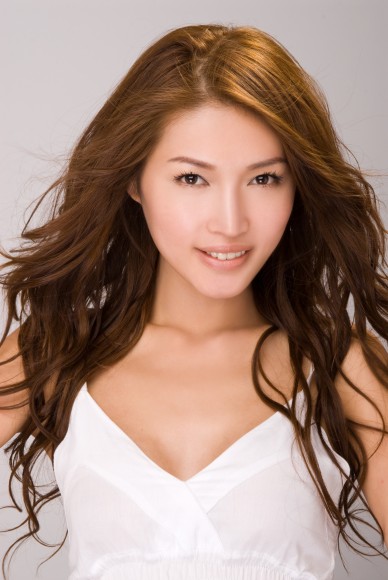
WHEN she was 18, Amber Chia flew to Kuala Lumpur from Tawau, Sabah with only RM300 in her pocket to fulfil her dream of becoming a model despite her parents’ vehement opposition.
Chia stumbled around for some time before she found the right modelling agency. In 2004, she got her big break when she was chosen as international spokesperson for Guess Watches. She has since represented various international brands like Sony, L’Oreal and Mitsubishi.
Apart from modelling, Chia has acted in Chinese movies such as Possessed, and made guest appearances in sitcoms and TV shows in Taiwan and China.
The 30-year-old started her own company Amber Creations in mid-2009 and a modelling school Amber Chia Academy in August 2010. She married her manager Adrian Wong in March last year, and gave birth to their son Ashton Wong in September.
Her year-old son and business are her main focus now. The model-turned-businessperson shares her humble beginnings and future aspirations in an interview on 29 July 2011 at her academy in Petaling Jaya.
TNG: When and where were you born?
I grew up in a fishing village in Sekinchan, but I was born in Ipoh on 14 Dec 1981. There was no hospital around Sekinchan or Kuala Selangor, so my mother went to Ipoh to give birth to her six children. I’m the third child. I’ve an elder brother, elder sister and three younger sisters.
My family moved to Tawau, Sabah when I was nine.
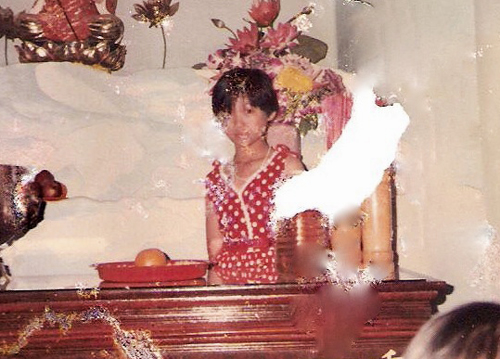
What was it like growing up in a fishing village? What are some of your fondest childhood memories?
My dad was a fisherman. He would go out for days to fish. I had to help my mum take care of my three younger sisters and I learnt to cook when I was very young.
We stayed in a wooden house and had lots of animals: ducks, geese, turtles, cats, dogs and birds. Although my family was poor, my siblings and I had fun growing up together. We played together, climbed trees, or went to the beach to catch sea snails. The place we stayed at was always flooded, but we were happy when it happened because then we didn’t have to go to school (laughs). I used to cycle to school.
Can you trace your ancestry?
My dad is Teochew and my mother is Hokkien. I can speak both dialects.
My paternal grandfather came from Chaoyang in China, but my dad was born here in Sekinchan in 1950. I don’t really remember my paternal grandfather because he passed away when I was very young.
What about your mother’s side? Where did your maternal grandparents come from?
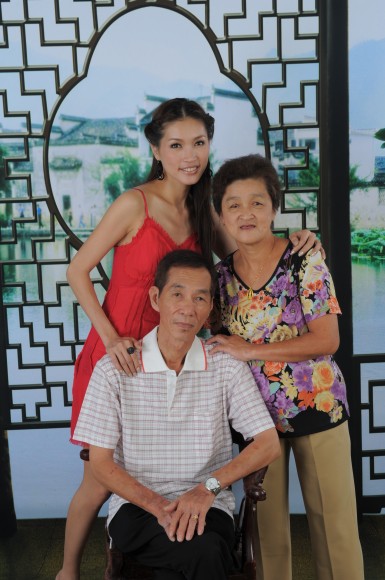
My maternal grandparents were farmers from Anshun, China. My mum was born in Perak. She married my dad when she was 26 and moved to Sekinchan.
My mum told me they got married after their first date. They watched a movie together. Their parents wanted them to get married. Although it was an arranged marriage, and they sometimes fought when I was young, my parents love each other dearly.
How was life in Tawau when your family moved there?
My elder sister, elder brother and I each went to stay with a different foster family or relative as my family had financial difficulties. My three younger sisters stayed with my parents. It was difficult to be separated from my parents. I was sad and missed them very much, but I understood the situation.
My foster parents treated me well. I consider them my parents’ friends as they were also from Sekinchan, originally. My foster father has already passed away, but I still keep in touch with my foster mother. They have four sons and they are like my brothers, too.
I moved back with my parents after primary school and started working part-time. Compared to Sekinchan, Tawau was a larger town [with more job opportunities]. I’ve done all sorts of jobs: kindergarten teacher, shopping mall promoter, and helped my dad sell fish in the market.
When did you decide to leave for Kuala Lumpur?
After I finished SPM, I told my parents I wanted to go to Kuala Lumpur to work. I’ve always wanted to be a model. I wanted to go to Kuala Lumpur to look for modelling agencies that could help me fulfill my dream. But when I told the people around me, they always dismissed it.
I even fought with my parents because they had negative impressions of the modelling industry and were against the idea. They were worried I would take the wrong path, all on my own at a young age in the city.
But I was very stubborn, so I bought an air ticket and only told my mum after I had arrived in Kuala Lumpur. I can’t be so daring anymore as I’ve started a family and have responsibilities.
I only had RM300 in my pocket when I first arrived in Kuala Lumpur. Looking back, it was quite amazing I managed to survive to be who I am today.
It was very tough in the beginning, I didn’t know where to go, what to do or who to go to. I tried looking up several modelling agencies, but many were more like makeup academies, and the people were more interested in selling me their makeup courses, which I couldn’t afford.
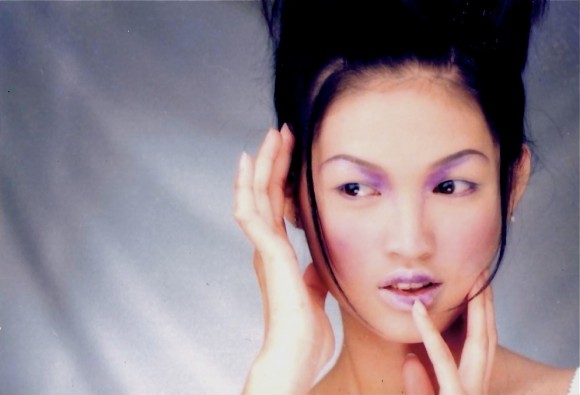
It took me a pretty long time to find the right agency. That’s the reason I told myself when I made it big, I would open my own academy to help those who want to join the modelling industry but don’t know where or how to start.
I love challenges. I believe if you work hard and have a [fierce] determination to achieve your dream, you can do it.
Is there any part of your identity that you struggle with, as a mother, woman, model, or Chinese Malaysian?
The older generation like my grandmother always favoured boys, so my elder brother was pampered in the family. He would always be the one who got the chicken drumsticks. Whenever anything happened, my brother was right and I was wrong.
That’s also the reason my mother continued to have children, because my grandmother wanted to have one more son in the family. That’s the gender part I’ve had to struggle with.
As for my identity as a Chinese [Malaysian], when I was growing up in Sabah, I had friends from different races in school, so I didn’t feel I was any different.
What about when you come to Kuala Lumpur?
I didn’t feel much difference as well.
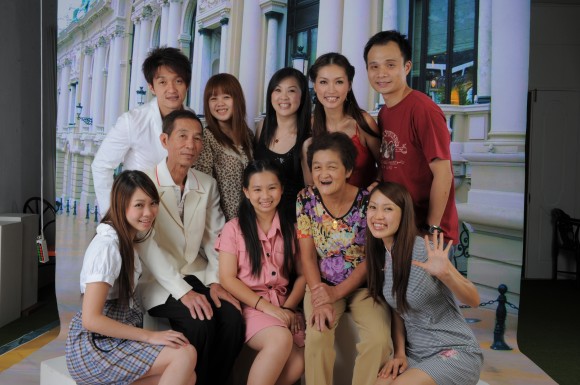
Describe the kind of Malaysia you would like to see for your children in future.
Although I don’t feel the differences, I know what the government is trying to achieve with [its] 1Malaysia [project]. I believe it cannot be done in one day as language is a major barrier. Not everyone can speak fluent Bahasa Malaysia or English. Malaysians need a common language, and it could be either Bahasa Malaysia or English.
But I hope we can achieve 1Malaysia. We’ve lots of interesting cultures, and in the local entertainment industry, you can see more movies being made using different languages. There are also different ethnicities in the modelling industry.
I believe one day we can become a united country. ![]()
The book Found in Malaysia, featuring 50 of our best interviews plus four previously unpublished ones with Datuk Zaid Ibrahim, Tan Sri Rafidah Aziz, Datin Paduka Marina Mahathir and Ramli Ibrahim, is available at all good bookstores for RM45. Found in Malaysia Volume 2, which was launched recently, will also be sold in bookstores soon.

